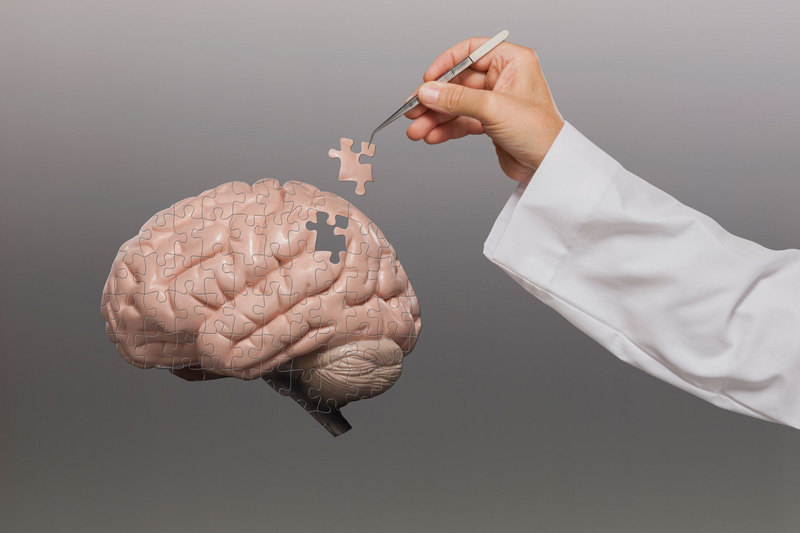Disparities and dated legislation impact people living with intellectual disabilities
11 October 2022 | Story Wendyl Martin. Photo Getty Images. Voice Cwenga Koyana Read time 6 min.
The Division of Intellectual Disability at the University of Cape Town’s (UCT) Department of Psychiatry and Mental Health held its Annual Mental Health Seminar on 4 October, with a keynote address highlighting that people with intellectual disabilities experience inequities and disparities which cause poorer health and lower life expectancy.
In her talk titled “Addressing inequities in the IDD (intellectual and developmental disabilities) field”, Emeritus Professor of Intellectual Disability Colleen Adnams described the inequities as persistent and deep.
“There is extensive evidence from high-income countries, especially in Europe, North America and [Australasia] in particular, showing that people with intellectual disabilities experience substantially poorer health outcomes and also a lower life expectancy than non-intellectually disabled peers. The life expectancy of people with intellectual and developmental disabilities has improved, but it has not bridged the gap between the typically developing and intellectually disabled people,” said Emeritus Professor Adnams.
The difference in health status between people with IDD and those without she attributed to environmental factors beyond the control of the individuals. This can be seen in the form of a cycle of disability leading to exclusion, leading to poverty, leading to limited resources.
“It’s not arguable anymore; it’s definite that there is inequity – it’s persistent and it’s deep.”
“This is what is avoidable, unfair and unjust. Evidence that supports an inequity perspective has emerged from multiple sources. It’s not arguable anymore; it’s definite that there is inequity – it’s persistent and it’s deep. Research around that has yielded data on access to care, healthcare, appropriate care and promotion programmes, and quality of health management has also been measured and reported, as well as lifestyle and environmental factors. They all support evidence for disparities and inequity,” she said.
Epilepsy, sensory impairments, respiratory disorders, obesity, oral health problems, disorders of the digestive system and osteoporosis are among the wide range of complex health conditions she listed that people with IDD are more likely to experience.
Looking specifically at the Western Cape, she noted a 2013 survey which showed that 39 facilities in the province indentified the use of medications as requiring support for the health conditions of residents with IDD.
Laws need updating to better lives of people with intellectual disabilities
Discrimination in legislation has been identified as a factor that can negatively impact the lives of those living with intellectual disabilities.
Toni Abrahams, a senior clinical psychologist and senior lecturer, in reflecting on a scoping review their division conducted with the question, “What does research on legislation and policy, services, training and capacity development and advocacy reveal regarding what is needed to support the health involving all persons with ID (intellectual disabilities) in South Africa”, said that there is outdated legislation which impacts on the rights of people with intellectual disability.
She said the aim was to do a country-level review focusing on legislation, public policy services and advocacy which promote health and well-being for persons with ID in South Africa. They looked at six acts and two national policies which reference intellectual disability. They also looked at peer-reviewed literature published between January 2009 and March 2020 and sourced these articles from government websites and databases. The discrimination in legislation affects voting rights and criminal procedures like giving evidence.
“An example [of outdated legislation] is the Electoral Act 73 of 1998, which denies the voting rights of those with ‘unsound mind’”.
“There is a lack of legislative reasonable accommodations to ensure that persons with ID can give evidence, which often results in non-conviction.”
“In the Mental Health Care Act 17 of 2002, through misinterpretations, has unfortunately excluded those with mild to moderate ID from mental health services historically.
“Then we also have the issue of inconsistent terminologies. So in the Criminal Procedures Act 51 of 1977, there has been efforts to replace the term ‘mental defect’ with ‘intellectual disability’, and that was in fact done by the Amendment Act in June 2017.
“The Criminal Procedures Act is quite pertinent because it allows for the determination of competency to give evidence. However, there is a lack of legislative reasonable accommodations to ensure that persons with ID can give evidence, which often results in non-conviction.
“In the Sexual Offences and Related Matters Amendment Bill there is no distinction between psychosocial disability and intellectual disability, and they utilise the term ‘mentally disabled’”.
“In South Africa we are all aware that we have rife gender-based violence … especially against girls and women.
“And then there’s also the Sterilisation Act 44 of 1998 which ensures the right to bodily integrity, but still allows for the consent to be given … on behalf of a mentally disabled person,” said Abrahams.
She pointed out that In South Africa an estimated one in four people has an intellectual disability.
“Most [people with intellectual disabilities] live in low- to middle-income countries and form one of the groupings that are the most vulnerable and marginalised ... [In South Africa] we have a particularly high incidence because we have many preventable causes, such as HIV and AIDS, nutrition issues, substance abuse and violence and trauma,” she said.
Professor Sharon Kleintjes, the head of the Division of Intellectual Disability, said that regulations must more clearly define the mental healthcare users to whom provisions apply, particularly for legislation linked to the licencing of community mental health day care and residential care facilities. This will help to prevent the exclusion of people with mild and moderate intellectual disability from accessing these services.
 This work is licensed under a Creative Commons Attribution-NoDerivatives 4.0 International License.
This work is licensed under a Creative Commons Attribution-NoDerivatives 4.0 International License.
Please view the republishing articles page for more information.










